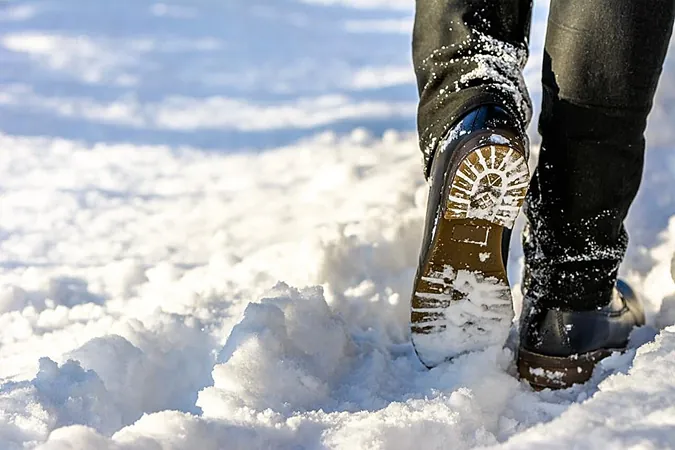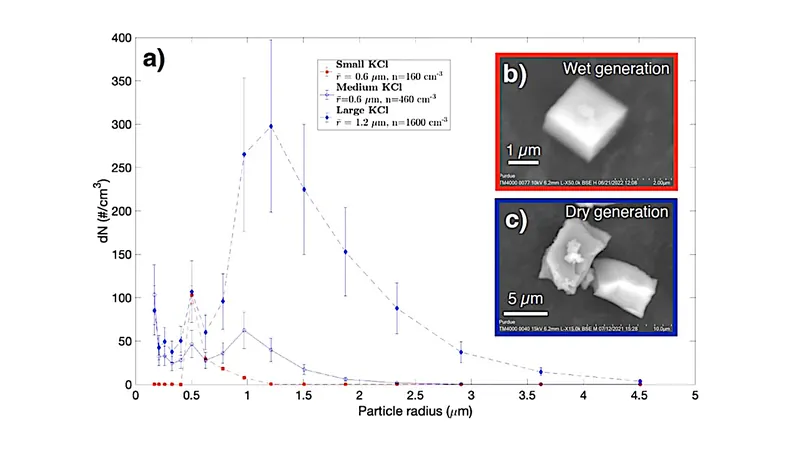
Is Winter Melancholy Getting You Down? New Poll Reveals Shocking Mood Changes Among Americans!
2024-11-06
Author: Yu
As winter descends upon the United States, many people are feeling the effects of what is commonly referred to as a "winter funk." According to a new poll from the American Psychiatric Association (APA), a staggering 41% of Americans reported a decline in their mood during the colder months.
The survey, part of the APA's Healthy Minds Poll, highlights that individuals in the Midwest and Northeast regions experience the most significant mood changes, with 52% of Midwesterners and 46% of Northeasterners admitting to battling the wintertime blues. "The diminished daylight, abrupt time changes, and the pressures of holiday expectations can weigh heavily on many individuals," explains Dr. Ramaswamy Viswanathan, President of the APA.
The poll unveiled several common outcomes of winter's arrival, including: - Increased sleepiness (41%) - Fatigue (28%) - Feelings of depression (27%) - A loss of interest in previously enjoyed activities (20%)
As gloomy days stretch into months, what can Americans do to fend off the winter chill that affects their mood? The survey suggests that social connections are critical; nearly half of respondents (46%) find solace in talking with friends and family. Other effective coping strategies include increased sleep (35%) and indulging in outdoor activities (35%).
Interestingly, the poll also highlights gender disparities in how winter impacts mood. A higher percentage of women (45%) reported mood declines compared to men (37%). The end of Daylight Savings Time appears to exacerbate this issue, with 33% of women indicating a negative mental health impact, compared to 26% of men.
Rural residents seem particularly susceptible to winter's effects, with 46% expressing feelings of winter blues, contrasted with 36% of city dwellers. Moreover, 31% of rural individuals reported struggling with the transition of the time change compared to 24% of their urban counterparts.
While most people experience mild symptoms, a smaller subset may develop Seasonal Affective Disorder (SAD), a more severe form of depression triggered by reduced sunlight. SAD symptoms include persistent feelings of sadness, disinterest in activities once enjoyed, and significant changes in appetite and sleep patterns. The APA emphasizes the importance of monitoring one’s mood during these months and encourages anyone feeling persistently down to seek support from a mental health professional.
Fortunately, treatment options for SAD are available, including light therapy, antidepressants, and psychotherapy. As Dr. Viswanathan wisely notes, "It’s vital to keep track of your mood. If you notice significant changes, reaching out to a mental health clinician can provide necessary support. And remember, spring is right around the corner!"
The APA's poll sampled 2,201 adults from October 18-20, and its findings underscore the crucial role mental health plays as we transition into the winter season. Stay tuned for more tips on maintaining your mental wellness during the darker months ahead!



 Brasil (PT)
Brasil (PT)
 Canada (EN)
Canada (EN)
 Chile (ES)
Chile (ES)
 España (ES)
España (ES)
 France (FR)
France (FR)
 Hong Kong (EN)
Hong Kong (EN)
 Italia (IT)
Italia (IT)
 日本 (JA)
日本 (JA)
 Magyarország (HU)
Magyarország (HU)
 Norge (NO)
Norge (NO)
 Polska (PL)
Polska (PL)
 Schweiz (DE)
Schweiz (DE)
 Singapore (EN)
Singapore (EN)
 Sverige (SV)
Sverige (SV)
 Suomi (FI)
Suomi (FI)
 Türkiye (TR)
Türkiye (TR)